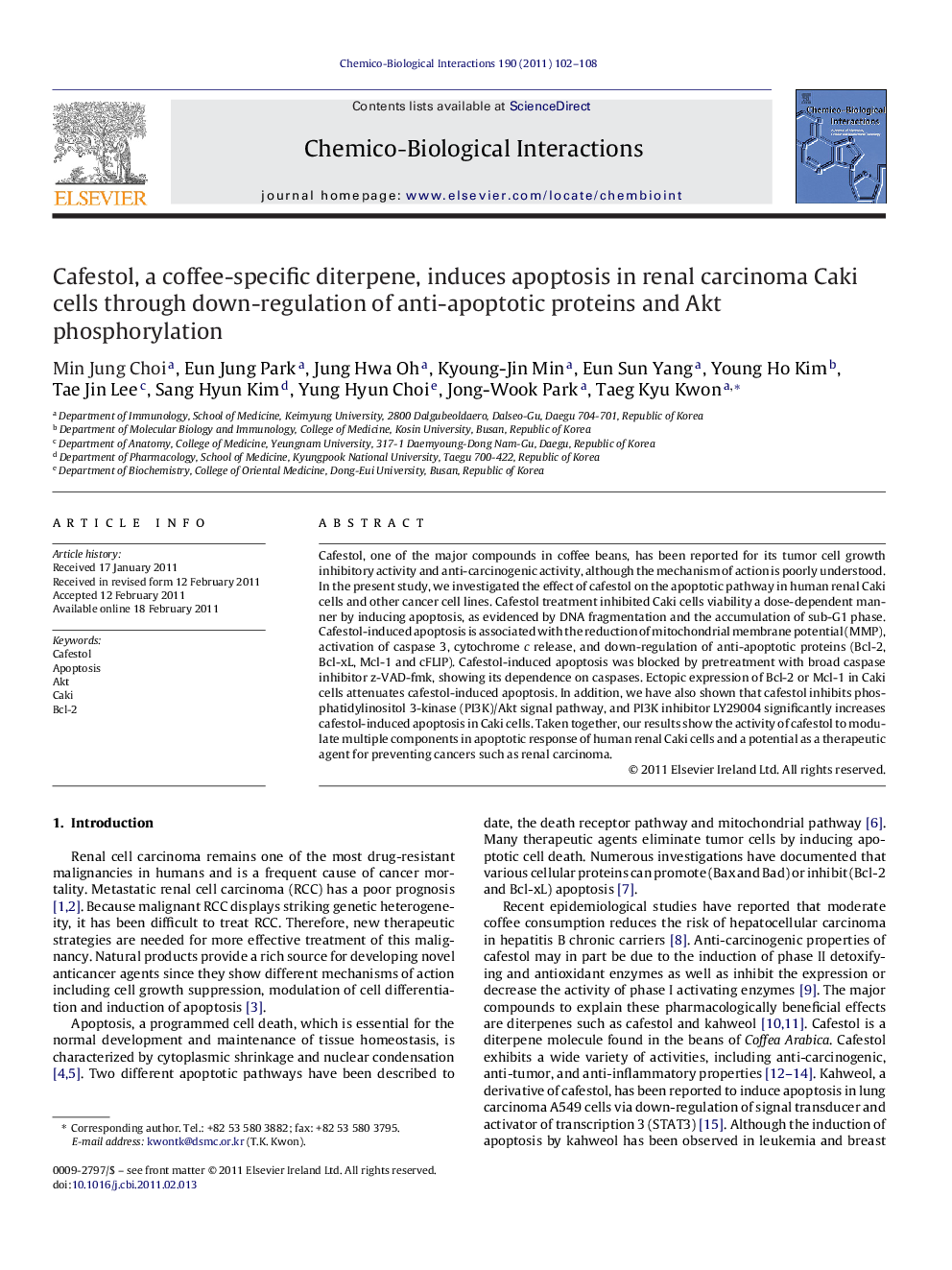| Article ID | Journal | Published Year | Pages | File Type |
|---|---|---|---|---|
| 2580922 | Chemico-Biological Interactions | 2011 | 7 Pages |
Cafestol, one of the major compounds in coffee beans, has been reported for its tumor cell growth inhibitory activity and anti-carcinogenic activity, although the mechanism of action is poorly understood. In the present study, we investigated the effect of cafestol on the apoptotic pathway in human renal Caki cells and other cancer cell lines. Cafestol treatment inhibited Caki cells viability a dose-dependent manner by inducing apoptosis, as evidenced by DNA fragmentation and the accumulation of sub-G1 phase. Cafestol-induced apoptosis is associated with the reduction of mitochondrial membrane potential (MMP), activation of caspase 3, cytochrome c release, and down-regulation of anti-apoptotic proteins (Bcl-2, Bcl-xL, Mcl-1 and cFLIP). Cafestol-induced apoptosis was blocked by pretreatment with broad caspase inhibitor z-VAD-fmk, showing its dependence on caspases. Ectopic expression of Bcl-2 or Mcl-1 in Caki cells attenuates cafestol-induced apoptosis. In addition, we have also shown that cafestol inhibits phosphatidylinositol 3-kinase (PI3K)/Akt signal pathway, and PI3K inhibitor LY29004 significantly increases cafestol-induced apoptosis in Caki cells. Taken together, our results show the activity of cafestol to modulate multiple components in apoptotic response of human renal Caki cells and a potential as a therapeutic agent for preventing cancers such as renal carcinoma.
